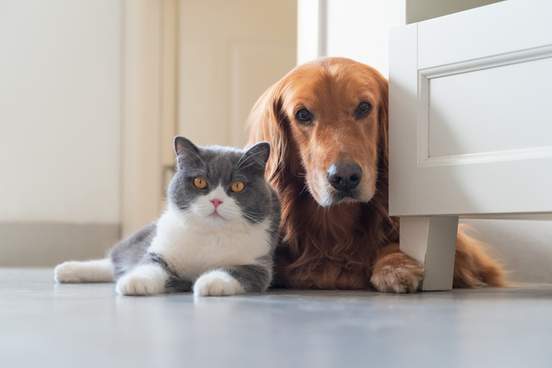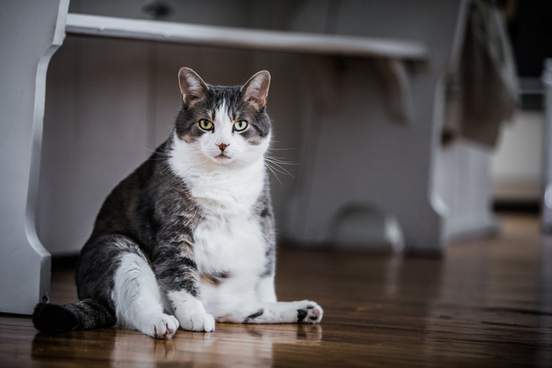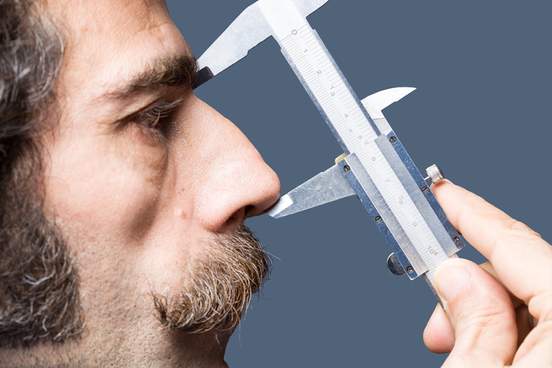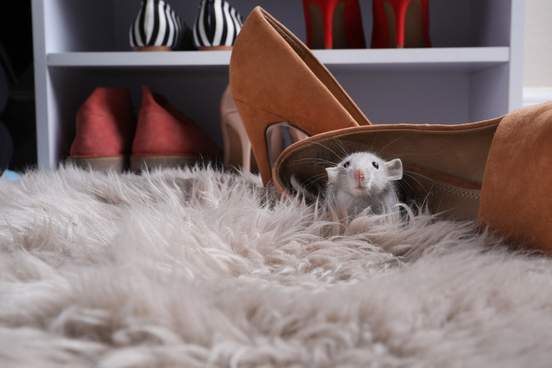
Euphemisms and Dysphemisms
There are times when circumstances call for a gentler or pleasanter word rather than the most direct one. And there are other times when circumstances inspire not the most direct word but one that is uglier or meaner. The gentler words are euphemisms; the meaner ones are dysphemisms. We’ve got some of each for you to wield as you see fit.

Mop
Dysphemism
: a thick mass of hair
Call someone’s luxurious mane a “mop” and you’ve insulted them to their very scalp. In fact, you’ve basically verbally turned them upside down and sped them across your kitchen floor. Be prepared for the consequences.

Love handles
Euphemism
: fatty bulges along the sides of the body at the waist
Our definition pulls no punches—fatty bulges along the sides of the body at the waist are indeed what love handles are. But as everyone who’s ever snuggled up to a loved one endowed with such bulges knows, love handles is a much better descriptor for what makes a person extra snuggly.

Pettifogger
Dysphemism
: a lawyer whose methods are petty, underhanded, or disreputable
Find yourself in any number of logistical, familial, or business, er, situations, and you will be glad to have a lawyer to help you navigate the complex legal terrain. And still, those who choose to practice law are subjected to comedic abuse as well as the occasional dysphemism.
Pettifogger refers to the kind of lawyer that gives lawyers a bad name: one who makes petty legal maneuvers that challenge legality and propriety. The word dates to the mid-16th century and takes its first part from our familiar word petty, which is always useful for describing those who are small-minded. The fogger of pettifogger is most likely a surname smear: in 15th and 16th century Germany there was a family of merchants and financiers by the name of “Fugger,” and inspired perhaps by this family, variations of fugger came to be used to refer to the wealthy and greedy, as well as to hucksters. In English, pettie fogger originally referred to a small-time operator of a shady business. When the word was first being pinned on lawyers specifically it seems to have applied mostly to lower-status attorneys who dealt with the smaller, less important cases we’d all, of course, actually prefer to find ourselves involved in.

Powder room
Euphemism
: a lavatory in the main living area of a house
We are hard pressed to find a non-euphemistic word for the room to which one goes when one requires the use of a toilet and sink (wash those hands!). English seems to have no single term that transparently does the job. Like powder room, the terms bathroom, restroom, and washroom tiptoe around the often-primary reason one has for visiting such a room. Comfort station doesn’t tiptoe around it so much as cover its ears and shout nonsense to drown out the flush. Lavatory, meanwhile, wraps the whole concept in Latin gauze.
The Oxford Historical Thesaurus tells us that the oldest English word used to refer to a spot for, ahem, depositing one’s bodily waste is gong, which does have a pleasant simplicity to it. (That gong is unrelated to the percussion instrument, which came to English from Malay and Javanese.)

Beak
Dysphemism
: the human nose
Our noses provide us with important information about the presence of fresh-baked bread and perfumed relatives, and how do we express our gratitude? With dysphemisms galore. In addition to beak, one may also insult one’s nose by designating it a schnoz/schnozz/schnozzola, a conk, a honker, or a neb. Most of these tend to be applied specifically to noses of substantial size, which to our way of thinking betrays inexcusable ingratitude.

Intestinal fortitude
Euphemism
: courage, stamina
There being nothing pretty about literal guts, i.e. bowels and entrails, one can understand why a euphemism might be useful when one wants to evoke the extended meaning of guts that we define as “fortitude and stamina in coping with what alarms, repels, or discourages : courage, pluck.” The question we have about intestinal fortitude, however, is this: does it do the job of a euphemism well? We think perhaps not, as “having the guts to stand up to a bully” may evoke entrails less than a similar phrase that includes the word intestinal. Still, intestinal fortitude does qualify as a euphemism because in the 1930s some folks decided to use it as such. It’s right there in the etymology.

Rug rat
Dysphemism
: a child not yet old enough for school
Likening a child to a rat definitely qualifies as a dysphemistic act, but seeing as rats are intelligent and adored by many as pets, we wonder if the rats might object to the comparison as well. Still, the application of the term rug rat to children is typically made with affection, not unlike tyke (which, we note, has an etymology that gives us pause).

Derriere
Euphemism
: the part of the body a person sits on : buttocks
There’s nothing like a fancy-sounding French term to elevate that most risible part of the body, the humble buttocks. Derriere does the job masterfully, but other euphemisms exist as well. Backside is polite though vague; behind and rear are coy but relatively clear. If you prefer that no one actually understand what you are referring to you may want to try throwing the technical-sounding fundament out there, or employ the truly obscure nates. (Note that nates has two syllables, and rhymes with “Katy’s.”) (Apologies to those of you named Katy.)





